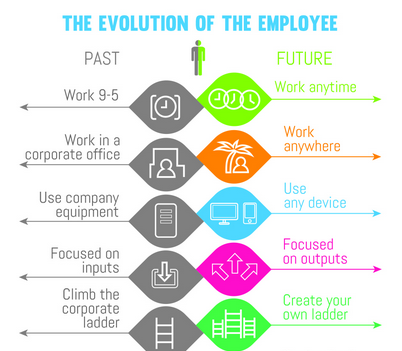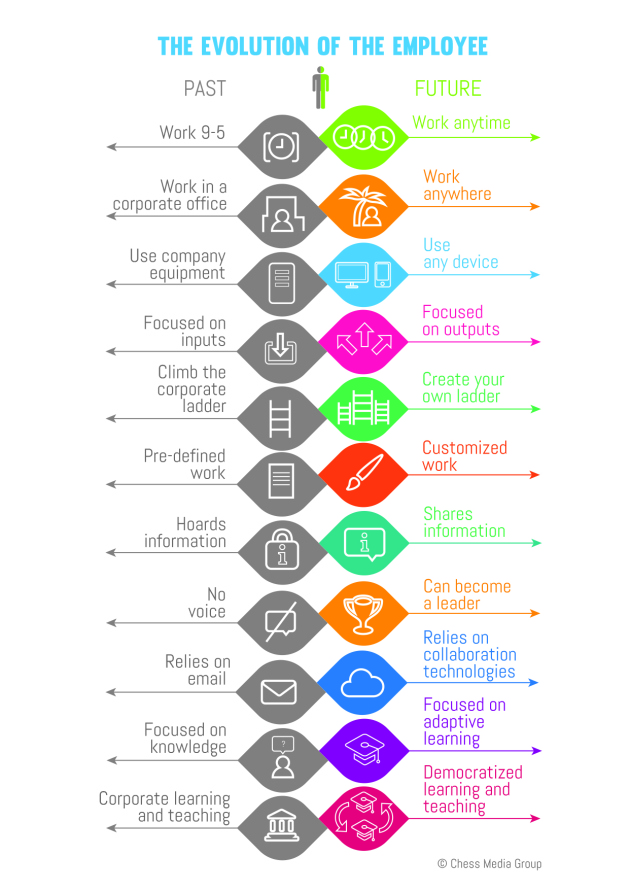 We live in a connected culture. Whereas a mere decade ago, we were on a slower Internet (for the most part), strides in technology have enabled us to be more productive in our online communications. Email is still a pretty ubiquitous method of chatting with people around the world whether for business or pleasure, and new collaboration tools such as Slack and HipChat create always-on virtual meeting experiences. Video chat speaks to our accountability for our presence by a computer, and facilitates global meetings, enabling a seamless culture wherever one is. Our cellular devices are “smart,” allowing us to take our work with us on the go in the palms of our hands. This has fostered an “always on” work culture for some, where dedicated employees go out of their way to check their work email before bed, ensuring that things are running smoothly before they crash for the night.
We live in a connected culture. Whereas a mere decade ago, we were on a slower Internet (for the most part), strides in technology have enabled us to be more productive in our online communications. Email is still a pretty ubiquitous method of chatting with people around the world whether for business or pleasure, and new collaboration tools such as Slack and HipChat create always-on virtual meeting experiences. Video chat speaks to our accountability for our presence by a computer, and facilitates global meetings, enabling a seamless culture wherever one is. Our cellular devices are “smart,” allowing us to take our work with us on the go in the palms of our hands. This has fostered an “always on” work culture for some, where dedicated employees go out of their way to check their work email before bed, ensuring that things are running smoothly before they crash for the night.
It has created a very small but promising cultural shift: the home office has grown.
This post is a bit personal, because I identified very much with the infographic at the bottom of the post, which speaks to how I work.
And let me mention something else: I haven’t worked onsite since 2007.
As a mom (now of three children!), I struggle with being in my prime career years and juggling it with parenthood, where the typical burden of responsibility falls upon the mother.
All of that doesn’t make sense to me given our clear transitional always-online culture.
I recently read Lean In, the book of female employee empowerment by former-Google-executive-turned-Facebook-COO Sheryl Sandberg. I loved her personal stories about how she encountered challenges being a senior woman in leadership roles primarily dominated by men. I identified with many challenges she amplified, where women do not feel like they can sit at the table or step up. I appreciated the many studies she brought to light. In one, I learned that women attribute their successes to luck versus hard work–men are the opposite. As a woman, I internalize failure myself, attributing it to bad performance, but did you know men often feel that with their failures, they just had a bad day? Studies have shown that women and men are truly different in their emotional responses to work related successes and failures, and that is why men are usually more successful professionally than women. Today, there are no negative stigmas associated with strong powerful men versus “controlling” women.
Lean In is not the only book of its kind. However, in my personal path, I never encountered one that told women to step up to assume more leadership and power. All in all, the stories I have read show a far different type of challenge facing women: the culture isn’t conducive to professional growth after children and sadly, women still can’t have it all. In a recent piece, a former boss shared her story about how she perceived moms as being unreliable and not worth their weight in salt–until she became a mom herself–and then felt extremely embarrassed about her anti-mom mindset.
While I appreciated Sandberg’s book, these other articles show how difficult it is to be a mother and a full time employee–while making it home for dinner, something Sandberg aims to do on a regular basis. And so, moms (like me) may elect to work from home. The infographic proves that in a connected culture, it’s possible, and it makes more sense. Sadly, when a remote role I had in the past transitioned on-site, I had to make the difficult decision to choose my family over a career I absolutely loved and envisioned staying with for decades to come.
Interestingly enough, when I work from home and get busy in a project, I get so immersed in work that I still barely see my children even in the evenings, but it is nice to know that I could at least see them awake versus asleep! Simply stated, there’s a peace of mind as a mother to be able to know she can. That alone for me eliminated a tremendous amount of stress versus the days when I’d have to go into an office.
Moms usually can’t start their own thing, but I know many who try. Most end up seeking stability and working for “the man,” craving some flexibility with their parenting duties. Simply stated, there are too few companies that embrace a culture conducive to ongoing telecommuting. Marissa Mayer and Sheryl Sandberg make it clear (Sandberg does it implicitly by not mentioning it at all) that working from home is not as accessible as our current technology dictates. In my own experience, motherhood has almost always (though indirectly) been a deterrent against real full time employment, because most tech companies, despite having the proper technologies, have yet to support a remote culture.
But there are benefits to all involved to working remotely.
Let’s start with flexibility. Being always connected means you can work anytime. It also means you can start your work day at 7am as I often do, take your child to the doctor or school at 9am, and be back (be)for(e) your 12pm client call (which you’d NEVER be able to do in a place like NYC due to commutes).
Now consider dedication. It also means you’re usually doing something at 11pm because your work computer is “in the other room.” (If you love your work, you’d do it in a heartbeat anyway.) Don’t be jealous, in-office types. It’s still hard work. Some parents still see their children less than in a corporate culture where work stops when the employee steps foot out of their office.
I often share my story about closing a six figure deal on a Saturday night–and on Mother’s Day weekend no less–from my hospital bed after giving birth to my daughter, to support my claim that dedication like this is not impossible to come by, and moms who are willing to work in this day and age are doing so because they are passionate and have a whole family who rely on them. Because of their responsibilities to their familial obligations, moms don’t slack off and will go above and beyond to show you exactly that.
Still, as Katharine Zaleski writes in her Fortune article:
But, I know there are still a lot of people like my 28-year-old self – they undervalue mothers’ contributions because they count hours logged in the office and not actual work. Most mothers lose if that’s the barometer for productivity.
There’s an inherent trust issue with employers who do not physically see their staff on a regular basis. Moms who “clearly have other priorities” are given the shaft in favor of someone who can travel away from family more often and who isn’t tied down.
But I must reiterate the commitment you can get from moms in particular: when you’re beholden to yourself, you may not be as motivated in the work that you do compared to a mom who has an entire family beholden to her. (Oh, and as far as dads are concerned, one salary households were phased out about 30 years ago.)
I write this as our culture has changed. It’s time to allow for and embrace remote work loudly–and have an accountability system in place. No need to micromanage to keep the camera always on (that wouldn’t work for the breastfeeding mom anyhow); the technology of late ensures employees are doing their jobs. Hiring should be focused on roles where performance would speak for itself. And trust–trust is important. This culture won’t work for everyone, but this mom can say there are quite a few of us who may surprise you.
It’s time for companies to step up and say “we’re remote friendly–come join us.” It’s time for the culture of companies to change to allow for hard workers to do their thing from where they sit, versus getting up and losing precious family and work time to any type of commute.
P.S. This.
Editor’s note (3/25): Oh, and remote workers are more productive.





